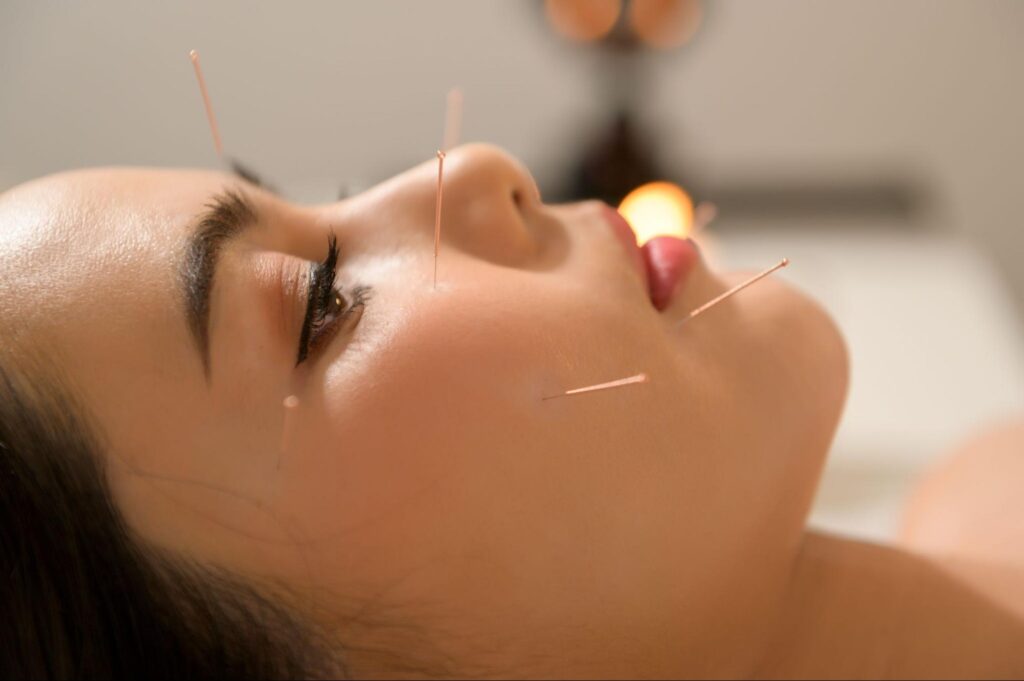
Many people are increasingly looking for natural ways to support their health. With more focus on preventing illness and staying resilient, many turn to ancient remedies that have stood the test of time. Traditional Chinese Medicine (TCM) has been used for thousands of years to promote balance in the body. It offers a holistic well-being approach, focusing on prevention and healing. Among the most treasured tools in TCM are Chinese herbs, renowned for their immune-boosting properties.
Traditional Chinese Medicine and Immunity
Traditional Chinese Medicine takes a different approach to health than Western medicine. It views the body as a whole system where everything is interconnected. Central to this system is Qi, or vital energy, which flows through the body. When the Qi is strong and balanced, the body is healthy and can defend itself against illness. However, when this energy is blocked or deficient, the body becomes vulnerable.
In TCM, the immune system isn’t just about fighting germs. It’s about maintaining balance throughout the body. This balance helps the body resist external pathogens and internal imbalances. TCM practitioners use various techniques, including herbs, to strengthen the body’s natural defenses. These herbs are selected to enhance energy flow, support organ function, and maintain overall health. Chinese medicine has long recognized that a robust and balanced body can more effectively prevent illness.
Common Chinese Medicine Herbs for Immune Support
Many herbs used in Chinese medicine bolster the immune system. These herbs not only protect against illness but also work to strengthen the body as a whole. Here are some of the most commonly used Chinese medicine herbs for boosting immunity:
Astragalus Root
Astragalus has been used in TCM for thousands of years and is one of the most popular herbs for enhancing immunity. This herb supports the body’s Qi, particularly in the lungs and spleen, which are central to immune health. Astragalus helps protect the body from external threats, such as viruses and bacteria, by strengthening the immune response.
Ginseng
Ginseng is well-known for its adaptogenic properties, meaning it helps the body adapt to stress. That is important because stress can weaken the immune system. Ginseng is used in TCM to boost energy levels, enhance mental clarity, and improve overall stamina. It also supports the immune system by increasing white blood cell activity, which helps the body fight infections.
Reishi Mushroom
Known as the “Mushroom of Immortality,” reishi has a long history in Chinese medicine. It is valued for its immune-modulating effects, which can help balance the immune system. Reishi supports the body in fighting off infections while also reducing inflammation. That makes it an ideal herb for both enhancing immunity and promoting longevity.
Licorice Root
Licorice root is a versatile herb used to support the immune system and improve the effectiveness of other herbs. It has antiviral and anti-inflammatory properties, making it helpful in fighting off colds and other respiratory infections. In TCM, licorice is often added to herbal formulas to harmonize the effects of different herbs and enhance their potency.
How Chinese Medicine Herbs Strengthen the Immune System
Chinese medicine herbs support the body’s natural defenses and boost immune function. Many herbs, such as Astragalus and reishi, are believed to stimulate the production of white blood cells, which help fight infections. These herbs also help regulate inflammation, preventing the immune system from overreacting while maintaining a balanced response to threats.
Unlike synthetic drugs, Chinese herbs focus on long-term immune health. They work to strengthen the body’s overall resilience, promoting balance and vitality. These herbs help maintain a robust, well-functioning immune system better equipped to prevent illness by supporting natural defense mechanisms.
The Benefits of Using Chinese Medicine Herbs for Immunity
Chinese medicine herbs provide a holistic and natural approach to supporting immune health. These herbs help boost the body’s defenses and offer various health benefits. Below are the key advantages of using Chinese medicine herbs for immunity:
Natural Path to Wellness and Fewer Side Effects
One of the main benefits of Chinese herbs is that they are natural and often have fewer side effects than modern synthetic drugs. Unlike conventional medications, which can sometimes cause adverse reactions, these herbs are gentler on the body. They are also generally safer for long-term use, making them ideal for individuals seeking sustained immune support. That makes Chinese medicine herbs appealing to those looking for a more natural path to health.
Boosting Immunity and Enhancing Vitality
Many Chinese herbs strengthen the immune system and boost overall energy and vitality. Astragalus, for instance, is well-known for enhancing the body’s energy, or Qi, while supporting the immune system. These herbs help the body maintain a higher level of resilience, which is crucial in fighting illnesses. Increasing stamina and reducing fatigue contribute to short-term immune defense and long-term vitality.
Adaptogenic Properties for Stress Relief
Many Chinese herbs, such as ginseng, are adaptogens, meaning they help the body adapt to stress. Since stress is a significant factor in weakening the immune system, adaptogenic herbs are critical in supporting immune health. They help regulate the body’s response to physical and emotional stress, minimizing its adverse effects. This ability to balance the stress response is essential in maintaining a strong, healthy immune system.
Holistic Approach to Health
Chinese medicine herbs are not only focused on treating individual symptoms but also on promoting overall wellness. They work by restoring balance to the body, helping it function optimally. Herbs like reishi mushrooms, for example, support the immune system and other body functions, such as reducing inflammation and promoting relaxation. This holistic approach allows the body to maintain long-term health, making Chinese medicine herbs a versatile and valuable tool for overall well-being.
Integrating Chinese Medicine Herbs into Your Daily Routine
Incorporating Chinese medicine herbs into your daily routine can be simple and effective. These herbs can be easily added to your diet or wellness regimen in various forms. Below are some practical ways to integrate Chinese herbs into everyday life:
Herbs in Teas, Soups, and Supplements
One of the easiest ways to consume Chinese herbs is through teas or soups. Herbs like Astragalus and ginseng are often brewed in teas or added to nourishing broths. These preparations allow you to enjoy the herbs’ benefits while contributing to your daily hydration or nutrition. Alternatively, many Chinese herbs are available as supplements, making it easy to incorporate them into your routine without much preparation.
Consulting a Trained Practitioner
When integrating these herbs into your routine, it’s essential to consult with a trained Traditional Chinese Medicine practitioner.. Practitioners can provide personalized advice based on your individual health needs and constitution and recommend herbal combinations that align with your body’s requirements and health goals. This tailored approach ensures that your herbs are safe and effective for your unique situation.
Daily Use for Prevention
Certain Chinese herbs are ideal for regular use to prevent illness. Herbs like Astragalus can be taken daily to strengthen immunity over time. This preventative approach helps the body build resilience, better preparing it to avoid common infections. By incorporating these herbs into your daily routine, you can maintain a more robust immune system year-round.
Acute Use During Illness
While some herbs are best for daily use, others are more effective during acute illness. For example, herbs like licorice root can be used when you’re experiencing cold symptoms to relieve and strengthen your body’s response. This flexible use of herbs allows you to adjust your regimen based on your immediate health needs. Knowing when to use specific herbs can maximize their immune-supporting effects during illness.
Lifestyle Practices in TCM That Complement Herbal Use
Traditional Chinese Medicine (TCM) emphasizes that overall health relies on herbal remedies and holistic lifestyle practices that nurture the body and mind. These practices work in harmony with Chinese medicine herbs to enhance immunity and maintain balance in the body. Below are some key lifestyle elements in TCM that complement the use of herbal remedies for optimal immune health.
Tai Chi and Qigong for Energy Flow
Tai Chi and Qigong are gentle, flowing movements practiced in TCM to promote the smooth flow of Qi (vital energy) throughout the body. These exercises are believed to improve immune function by reducing stress, increasing circulation, and encouraging relaxation. When Qi flows freely, the body is more resilient and better equipped to fight off illness. Regular practice of Tai Chi or Qigong can enhance the effects of immune-boosting herbs by keeping the body’s energy in balance.
Acupuncture for Immune Health
Acupuncture, another cornerstone of TCM, involves inserting thin needles into specific points on the body to restore balance to the flow of Qi. It strengthens the immune system and supports the body’s ability to ward off illness. Acupuncture works by stimulating the body’s natural healing processes and regulating inflammation. When combined with herbal therapies, acupuncture can boost overall immune resilience, helping the body maintain harmony and health.
Dietary Therapy to Support Immunity
Food is considered medicine in TCM, and a balanced diet is crucial for maintaining strong immunity. Certain foods are recommended to complement herbal treatments, particularly those that warm the body and support Qi. For instance, warming foods like ginger, garlic, and bone broth are often encouraged to keep the digestive system strong, which is believed to be closely linked to immune function. Alongside herbs, consuming nutrient-rich, easily digestible foods ensures the body has the energy to fight illness and stay balanced.
Mind-Body Connection and Stress Management
Managing stress is crucial for immune health, as chronic stress weakens the immune system. Meditation, breathing exercises, and mindfulness are often integrated into TCM routines to calm the mind and reduce stress. These mind-body techniques help regulate the nervous system, prevent overactivation of the immune response, and improve overall well-being. When paired with adaptogenic herbs like ginseng, these practices strengthen the immune system, which helps the body handle stress.
The Power of Chinese Medicine for Lasting Immune Health
Chinese medicine herbs provide more than a temporary boost to your immune system—they offer a time-tested path toward lasting resilience and vitality. These herbs strengthen immunity from the inside out by working harmoniously with the body’s natural defenses. Complementary TCM practices like Tai Chi, acupuncture, and mindful eating help create a balanced, healthy system better equipped to fend off illness.
In today’s world, where maintaining health has never been more critical, incorporating Chinese medicine herbs into your routine can be a decisive step toward long-term wellness. Whether you’re looking to prevent illness or enhance your overall vitality, these herbs offer a natural and sustainable solution for immune health. Explore their benefits and consider consulting a trained practitioner to tailor an approach that suits your unique needs, giving your body the tools to stay strong and balanced.
Dive deeper into the benefits of TCM and herbs for your health by checking out our 간송한의원123 Acupuncture & Herbs blog.




